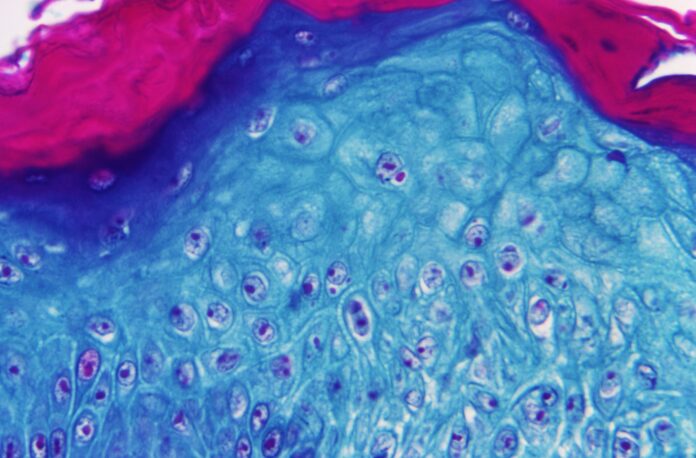Canadian health officials are urging caution after the discovery of monkeypox cases in the country and other parts of the world.
As of Friday, five cases have been confirmed and roughly two dozen others are under investigation, mainly in Quebec, according to the Public Health Agency of Canada (PHAC).
While the risk of infection in the general population is low, it is not yet clear how widespread the disease has become in Canada, Dr. Theresa Tam, chief public health officer, said Friday.
“We might expect to hear more confirmations in the upcoming hours and days,” she told reporters during a virtual news conference.
Monkeypox is a rare zoonotic infectious disease that can be transmitted from close contact with an infected individual through bodily fluids, sores or lesions on skin and/or respiratory droplets.
Sharing clothing, bedding or common items that have been contaminated with the infected person’s fluids or sores can also spread the virus, according to PHAC.
To lower the risk of infection, PHAC is advising physical distancing, frequent hand-washing and masking — all measures that have been used to fight the COVID-19 pandemic.
There is no specific vaccine for monkeypox, which belongs to the same family of viruses as variola, which causes smallpox.
Vaccination against smallpox has shown to be 85 per cent effective in preventing monkeypox, according to the World Health Organization (WHO).
Canada, which keeps a small stockpile of smallpox vaccines, is considering using those shots for monkeypox.
Canada’s top doctor discusses vaccine strategies for monkeypox
On Friday, Dr. Tam did not disclose how many doses of the smallpox vaccine Canada has available, citing security reasons.
Canada stopped routinely immunizing people against smallpox in 1972.
At this time, experts do not recommend vaccinating the general population, but instead are going for a “ring vaccination campaign” around close contacts of confirmed cases and are prioritizing high-risk groups.
Trending Stories
Marnie Schulenburg, ‘As the World Turns’ star, dies at 37
As COVID-19 begins to diminish, more Canadians are getting sick with the flu
There are two phases when it comes to developing symptoms of monkeypox, which include fever, headache, muscle aches, exhaustion, swollen lymph nodes and lesions all over the body.
In the first so-called “invasive phase,” a person could develop a fever, sore throat and cough, according to Dr. Donald Vinh, an infectious disease specialist and medical microbiologist at the McGill University Health Centre (MUHC).
Within a week, a rash or skin lesions, full of fluid, start developing.
What is monkeypox and how is it transmitted?
The incubation period, which is the time from exposure to the onset of symptoms, is on average between five and 21 days, said Dr. Anne Rimoin, an epidemiologist at the UCLA School of Public Health.
Isolation and quarantine work “really well” to limit the spread of monkeypox, she told Global News.
“It would be a good idea to … contact your doctor and to isolate from other people until you are sure that that’s not what you have.”
Infected individuals should isolate for about three weeks, said McGill’s Vinh, as well as those people who have been in potential contact with a confirmed or suspected case.
If you are a suspected case or have symptoms, you should contact the regional public health authorities, he added.
Those who are symptomatic will be guided to get a medical evaluation to determine if they have the disease.
Any objects or surfaces that may have come in contact with an infected individual’s respiratory droplets or skin lesion fluid should be properly disinfected, Vinh advised.
There are no specific medications available to treat monkeypox, but smallpox antivirals can be used as a treatment.
“There are medications or drugs that were developed that seemed to provide some effect for a cousin of monkeypox, which is smallpox or other types of pox viruses, but again, we don’t actually have the same proof that they would work for monkeypox at this moment,” said Vinh.
The WHO says monkeypox patients should be given fluids and food “to maintain adequate nutritional status.”
Suspected monkeypox cases in Canada spark public health concerns
Antiviral agent tecovirmat developed for smallpox is considered a therapeutic for monkeypox in Europe and the United States.
The U.S. CDC has also listed cidofovir, brincidofovir and vaccinia immune globulin (VIG) as treatment options.
Skin lesions can lead to pneumonia, dehydration and bacteria, causing a superinfection.
In those cases, supportive care, such as antibiotics, intravenous fluids and pain medications can be given to the patient, Vinh said.
— With files from Global News’ Jamie Mauracher and The Canadian Press
© 2022 Global News, a division of Corus Entertainment Inc.



